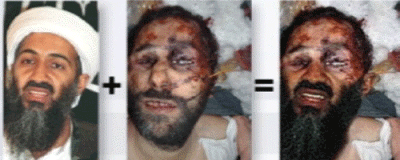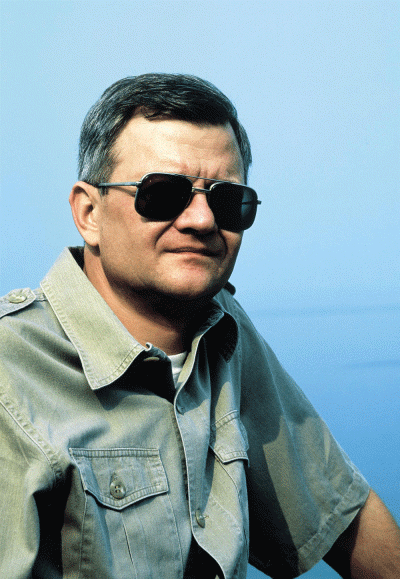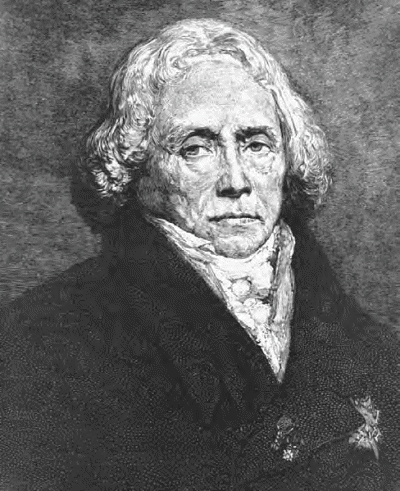Steve Pieczenikby Wikipedia
NOTICE: THIS WORK MAY BE PROTECTED BY COPYRIGHTYOU ARE REQUIRED TO READ
THE COPYRIGHT NOTICE AT THIS LINK BEFORE YOU READ THE FOLLOWING WORK, THAT IS AVAILABLE SOLELY FOR PRIVATE STUDY, SCHOLARSHIP OR RESEARCH PURSUANT TO 17 U.S.C. SECTION 107 AND 108. IN THE EVENT THAT THE LIBRARY DETERMINES THAT UNLAWFUL COPYING OF THIS WORK HAS OCCURRED, THE LIBRARY HAS THE RIGHT TO BLOCK THE I.P. ADDRESS AT WHICH THE UNLAWFUL COPYING APPEARED TO HAVE OCCURRED. THANK YOU FOR RESPECTING THE RIGHTS OF COPYRIGHT OWNERS.
Steve Pieczenik, MD, PhD[1] (born December 7, 1943 in Havana, Cuba) is an American psychiatrist, former State Department official, author and publisher.
Early Life and EducationPieczenik was born of Russian-Polish parents in Cuba and reared in France.[2] His father, a doctor from Dombrovicz who studied and worked in Toulouse[3], fled Poland before World War II. His mother, a Russian Jew from Bialystok[3], fled Europe after many of her family members were killed. The couple met in Portugal, where both had fled ahead of the Nazi invaders.[3] Pieczenik was born in Cuba, out of wedlock in 1943.[4][3] After living in Toulouse, France for six years, Pieczenik's family migrated to the United States where they settled in the Harlem area[3] of New York City, New York.[5] Steve Pieczenik was eight years old when his parents received their visa to the US.[3]
Pieczenik is a classical pianist who wrote a full-length musical at the age of eight.[4]
Pieczenik is a Harvard-trained psychiatrist and has a doctorate in international relations from MIT.[3]
According to Pieczenik's autobiography, he attended Booker T. Washington High School in the Harlem neighborhood of New York City. Pieczenik received a full scholarship to Cornell University at the age of 16.[3] In 1964, Pieczenik claims he received a B.A. degree in Pre-Medicine and Psychology from Cornell, later attending Cornell University Medical College. In his spare time, he attained a PhD in international relations from MIT while studying at Harvard Medical School.[4] Pieczenik claims to be the first psychiatrist ever to receive a PhD focusing on international relations. [5]
While doing his psychiatric residency at Harvard, he was awarded the Harry E. Solomon award for his paper entitled "The hierarchy of ego-defense mechanisms in foreign policy decision making."[3]
An article written by Pieczenik - "Psychological dimensions of international dependency" appears in The American Journal of Psychiatry, Vol 132(4), Apr 1975, 428-431.[6]
Professional lifePieczenik was deputy assistant secretary of state under Henry Kissinger, Cyrus Vance and James Baker.[3] His expertise includes foreign policy, international crisis management and psychological warfare.[7] He served the presidential administrations of Gerald Ford, Jimmy Carter, Ronald Reagan and George H.W. Bush in the capacity of deputy assistant secretary.[8]
In 1974, Pieczenik joined the U.S. State Department as a consultant to restructure its Office for the Prevention of Terrorism.[2]
In 1976, Pieczenik was made deputy assistant secretary of state for management.[2][9][10][5]
At the State Department, he served as a "specialist on hostage taking."[11] He has been credited with devising successful negotiating strategies and tactics used in several high profile hostage situations including the 1976 TWA Flight 355 hostage situation and the 1977 kidnapping of the son of Cyprus' president.[2] He was involved in negotiations for the release of Aldo Moro after Moro was kidnapped.[12] As a renowned psychiatrist, he was utilized as a press source for early information on the mental state of the hostages involved in the Iranian Hostage Crisis after they were freed.[13] In 1977, Pulitzer Prize winning journalist Mary McGrory described Stephen Pieczenik as "one of the most 'brilliantly competent' men in the field of terrorism."[14] He worked "side by side" with Police Chief Maurice J. Cullinane in the Washington, D.C. command center of Mayor Walter Washington during the 1977 Hanafi Siege.[15] In 1978, Pieczenik was known as "a psychiatrist and political scientist in the U.S. State Department whose credentials and experiences are probably unique among officials handling terrorist situations."[2]
On September 17, 1978 the Camp David Accords were signed. Pieczenik was at the secret Camp David negotiations leading up to the signing of the Accords. He worked out strategy and tactics based on psychopolitical dynamics. He correctly predicted that, given their common backgrounds, Egyptian President Anwar El Sadat and Israeli Prime Minister Menachem Begin would get along.[3]
In 1979, he resigned as deputy assistant secretary of state over the handling of the Iranian hostage crisis.[4]
In the early 1980's, Pieczenik wrote an article for The Washington Post in which he claims to have heard a senior U.S. official in the State Department Operations Center give permission for the attack that led to the death of U.S. Ambassador Adolph Dubs in Kabul, Afghanistan in 1979.[16]
Pieczenik got to know Syrian President Hafez Assad well during his 20 years in the US State Department.[3]
In 1982, Pieczenik was mentioned in a New York Times article as "a psychiatrist who has treated C.I.A. employees".[17]
In 2001, Pieczenik operated as chief executive officer of Strategic Intelligence Associates, a consulting firm.[18]
Dr. Pieczenik has been affiliated in a professional capacity as a psychiatrist with the National Institute of Mental Health. [19]
Dr. Pieczenik has previously consulted with both the United States Institute of Peace and the RAND Corporation [20]
Dr. Pieczenik is a member of the Council on Foreign Relations.[21]
Dr. Pieczenik is known to be fluent in five languages including Russian, Spanish and French[2][4][3]
Dr. Pieczenik has lectured at the National Defense University.[7]
Writing ventures
Pieczenik has made a number of ventures into fiction, both as an author (of State of Emergency and a number of other books)[22] and as a business partner of Tom Clancy for several series of novels. [23]
He studied writing along with medicine beginning with drama and poetry. But eventually "I turned to fiction because it allows me to address reality as it is or could be."[3]
Pieczenik received a listed credit as "co-creator" for both Tom Clancy's Op-Center and Tom Clancy's Net Force, two best-selling series of novels, as a result of a business relationship with Tom Clancy. He was not directly involved in writing books in these series, but "assembled a team" including the ghost-writer who did author the novels, and someone to handle the "packaging" of the novels. [24] [23] The Op-Center series alone had grossed more than 28 million dollars in net profit for the partnership by 2003. [23]
Books authored include: novel Mind Palace (1985), novel Blood Heat (1989), self-help My Life Is Great! (1990) and paper-back edition Hidden Passions (1991), novel Maximum Vigilance (1993), novel Pax Pacifica (1995), novel State Of Emergency (1999), novel My Beloved Talleyrand (2005).[25]
He's also credited under the pseudonym Alexander Court for writing the novels Active Measures (2001), and Active Pursuit (2002).[26]
Dr. Pieczenik has previously had at least two articles published in the American Intelligence Journal, a peer-reviewed journal published by the National Military Intelligence Association.[27]
In September 2010, Dr. John Neustadt was recognized by Elsevier as being one of the Top Ten Cited Authors in 2007 & 2008 for his article, "Mitochondrial dysfunction and molecular pathways of disease." This article was co-authored with Dr. Pieczenik.[28]
Dr. Pieczenik is the co-author of the published textbook, Foundations and Applications of Medical Biochemistry in Clinical Practice.[29]
Personal viewsIn 1992, Pieczenik told Newsday that in his professional opinion, President Bush was "clinically depressed." As a result, he was brought up on an ethics charge before the American Psychiatric Association and reprimanded. He subsequently quit the APA.[4]
He calls himself a "maverick troublemaker. You make your own rules. You pay the consequences."[4]
On May 3rd, 2011, radio host Alex Jones aired an interview in which Dr. Pieczenik claimed that Osama Bin Laden had died of Marfan syndrome back in July of 2002, and that the attacks on the United States on 9/11 were part of a false flag operation by the American government.[30]
References1. Leland, John (July 20, 1992), "Books too early: Could Perot save us from this surplus?", The New York Times,
http://pqasb.pqarchiver.com/chicagotrib ... 29751.html?
dids=24429751:24429751&FMT=ABS&FMTS=ABS:FT&type=current&date=Jul+19%
2C+1992&author=Michael+Kilian%2C+Chicago+Tribune.&pub=Chicago+Tribune+%
28pre-1997+Fulltext%29&desc=Books+too+early%
3A+Could+Perot+save+us+from+this+surplus%3F&pqatl=google, retrieved May 5, 2011
2. Toth, Robert C. (1978-04-21). "U.S. scientist aids in Moro search". St. Petersburg Times (Los Angeles Times): pp. 9A.
http://news.google.com/newspapers?
id=0nJQAAAAIBAJ&sjid=gloDAAAAIBAJ&pg=6616,4946809&dq=pieczenik&hl=en.
Retrieved 2011-05-14. "Credited with devising negotiating strategy and tactics"
3. Kaye, Helen (July 7, 1995). "US psychiatrist and ME expert analyzes region". Jerusalem Post (The Jerusalem Post).
http://www.highbeam.com/doc/1P1-5991446.html. Retrieved 2011-05-14. "He was deputy assistant secretary of state under Henry Kissinger, Cyrus Vance and James Baker."
4. Mansfield, Stephanie (February 27, 1995). "He's Been There, Done That; Steve Pieczenik, Tom Clancy's Man on the Inside". The Washington Post (The Washington Post Company).
http://www.highbeam.com/doc/1P2-822921.html. Retrieved 2011-05-14. "His father, a doctor, fled Poland before World War II. His mother, a Russian Jew, fled Europe after many of her family members were killed. The couple met in Portugal, where both had fled ahead of the Nazi invaders."
5.
http://www.stevepieczenik.com/bio.htm, retrieved May 5, 2011
6. Pieczenik, Steve R. (Apr 1975). "Psychological dimensions of international dependency.". The American Journal of Psychiatry 132(4): 428-431.
http://psycnet.apa.org/psycinfo/1975-20872-001. Retrieved 2011-05-14. "Analyzes the psychological consequences of international dependency".
7. Kelley, Matt (February 26, 2002). "Rumsfeld: Pentagon to Close Office". AP Online (Associated Press).
http://www.highbeam.com/doc/1P1-51003858.html. Retrieved 2011-05-14. "Dr. Steve Pieczenik, a psychological warfare expert who has worked for the State Department and lectured at the National Defense University."
8. Romano, Lois (June 10, 1992). "THE RELIABLE SOURCE". The Washington Post (The Washington Post).
http://www.highbeam.com/doc/1P2-1009984.html. Retrieved 2011-05-14. "Pieczenik served as deputy secretary during the Ford, Carter, Reagan and Bush administrations."
9. Goleman, Daniel (March 8, 1985), "Seat Of Power And Woe", The New York Times,
http://www.nytimes.com/1985/03/08/us/se ... d-woe.html, retrieved May 5, 2011
10. Forbes,
http://blogs.forbes.com/kenrapoza/2011/ ... w-roswell/, retrieved May 8, 2011
11. Geyer, Georgie Anne (1980-01-18). "We Have Ignored Soviet Paranoia". Sarasota Herald-Tribune: pp. 7A.
http://news.google.com/newspapers?
id=R60cAAAAIBAJ&sjid=1WcEAAAAIBAJ&pg=6631,953120&dq=pieczenik&hl=en.
Retrieved 2011-05-14. "U.S. State Department specialist on hostage taking"
12. Moore, Malcolm (March 11, 2008), "US envoy admits role in Aldo Moro killing", The Daily Telegraph (London),
http://www.telegraph.co.uk/news/worldnews/1581425/US-envoy-admits-role-in-Aldo-Moro-killing.html, retrieved May 5, 2011
13. Taubman, Philip (January 28, 1981), "Conflicts In Mental Reports Raise Questions On Captives", The New York Times,
http://www.nytimes.com/1981/01/28/us/conflicts-in-mental-reports-raise-questions-on-captives.html, retrieved May 5, 2011
14. McGrory, Mary (1977-03-13). "How Experts Can Tame Terrorists". The Pittsburgh Press: pp. B2.
http://news.google.com/newspapers?
id=zVQdAAAAIBAJ&sjid=IVcEAAAAIBAJ&pg=5671,3491370&dq=pieczenik&hl=en.
Retrieved 2011-05-14. "One of the most "brilliantly competent" men in the field of terrorism..."
15. McGrory, Mary (1977-03-13). "Balking terrorists requires expertise". Eugene Register-Guard: pp. 17A.
http://news.google.com/newspapers?
id=gNZVAAAAIBAJ&sjid=JOADAAAAIBAJ&pg=3178,2900467&dq=pieczenik&hl=en.
Retrieved 2011-05-14. "...at the command center of Mayor Walter Washington and worked "side by side" with Police Chief Maurice J. Cullinane"
16. "Coverup charged in death of U.S. envoy". Spokane Daily Chronicle (United Press International): pp. 15. 1981-02-18.
http://news.google.com/newspapers?
id=y_pLAAAAIBAJ&sjid=QfkDAAAAIBAJ&pg=7047,529503&dq=pieczenik&hl=en.
Retrieved 2011-05-14. ""I was present. I heard it.""
17. TAUBMAN, PHILIP (October 13, 1982). "PSYCHIATRISTS DESCRIBE KAFKAESQUE PORTFOLIO". The New York Times (The New York Times).
http://www.nytimes.com/1982/10/13/us/ps ... folio.html?
pagewanted=all. Retrieved 2011-05-14. "Dr. Steve R. Pieczenik, a psychiatrist who has treated C.I.A. employees."
18. Stanton, John J. (December 1, 2001). "U.S. Intelligence Community Reaches Crossroads: CIA official says agency is implementing reforms to address new threats. (Analysis).". National Defense (National Defense Industrial Association.).
http://www.highbeam.com/doc/1G1-81007776.html. Retrieved 2011-05-14. "Steve Pieczenik, chief executive officer of Strategic Intelligence Associates, a consulting firm."
19.
http://digital-library.usma.edu/libmedi ... /V1976.PDF, retrieved May 5, 2011
20.
http://www.usip.org/files/resources/sr94.pdf21.
http://www.cfr.org/about/membership/ros ... l?letter=P22. Pieczenik, Steve (1997). State of Emergency (First ed.). Putnam Adult. ISBN 0399143238.
23.
http://www.courts.state.md.us/opinions/ ... 112a07.pdf, retrieved May 5, 2011
24.
http://www.amazon.com/s/ref=nb_sb_noss? ... oks&field-keywords=Steve+Pieczenik&x=0&y=0, retrieved May 5, 2011
25. Barnes and Noble book search
26.
http://www.stevepieczenik.com/novels.htm27.
http://www.nmia.org/?AIJ0410, retrieved May 5, 2011
28.
http://www.montanaim.com/about.html29.
http://www.montanaim.com/about.html30. Watson, Paul (2011-05-04). "Top Government Insider: Bin Laden Died In 2001, 9/11 A False Flag". Infowars.
http://www.infowars.com/top-us-governme ... bin-laden-died-in-2001-911-a-false-flag/. Retrieved 2011-05-13.



